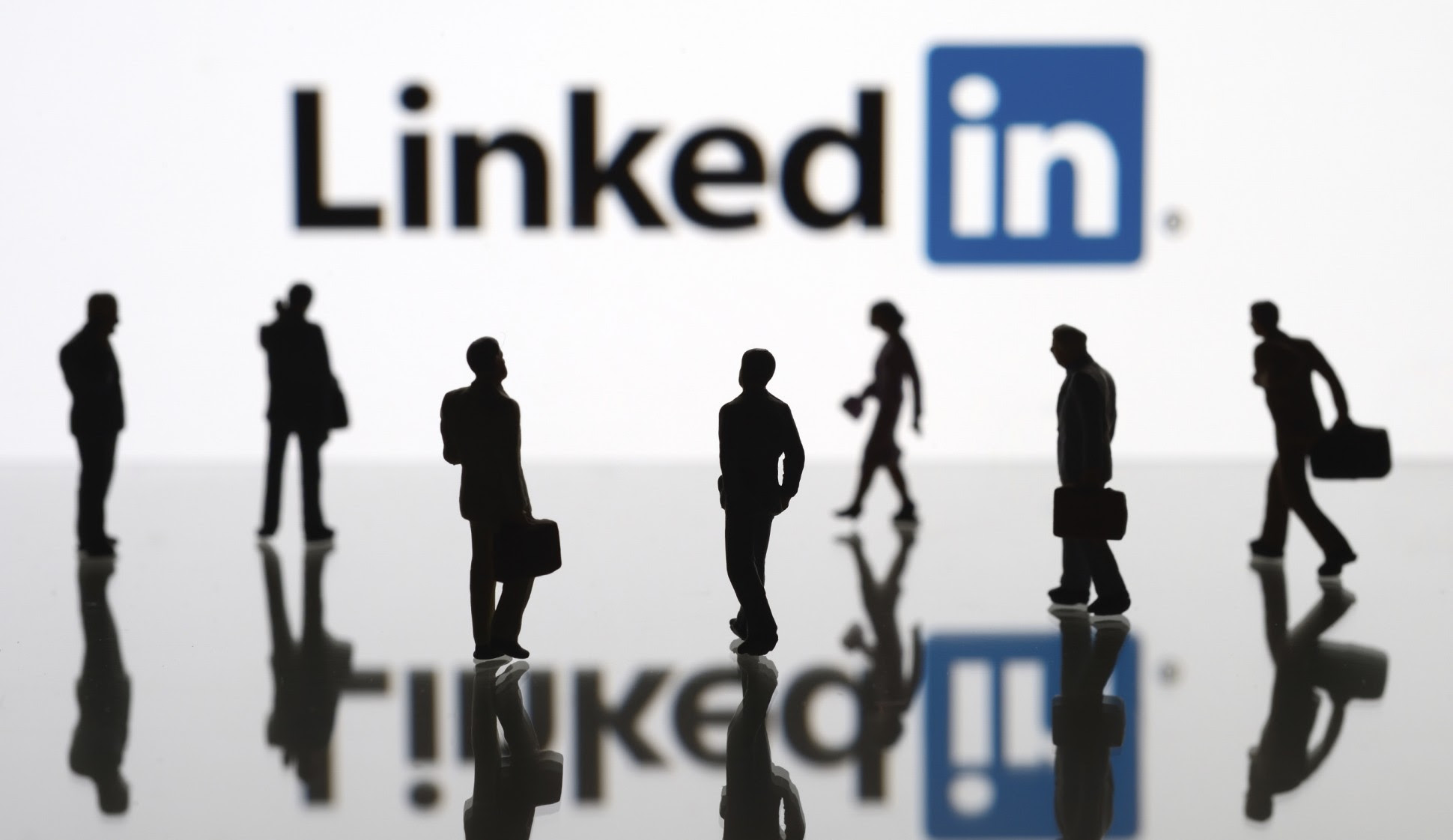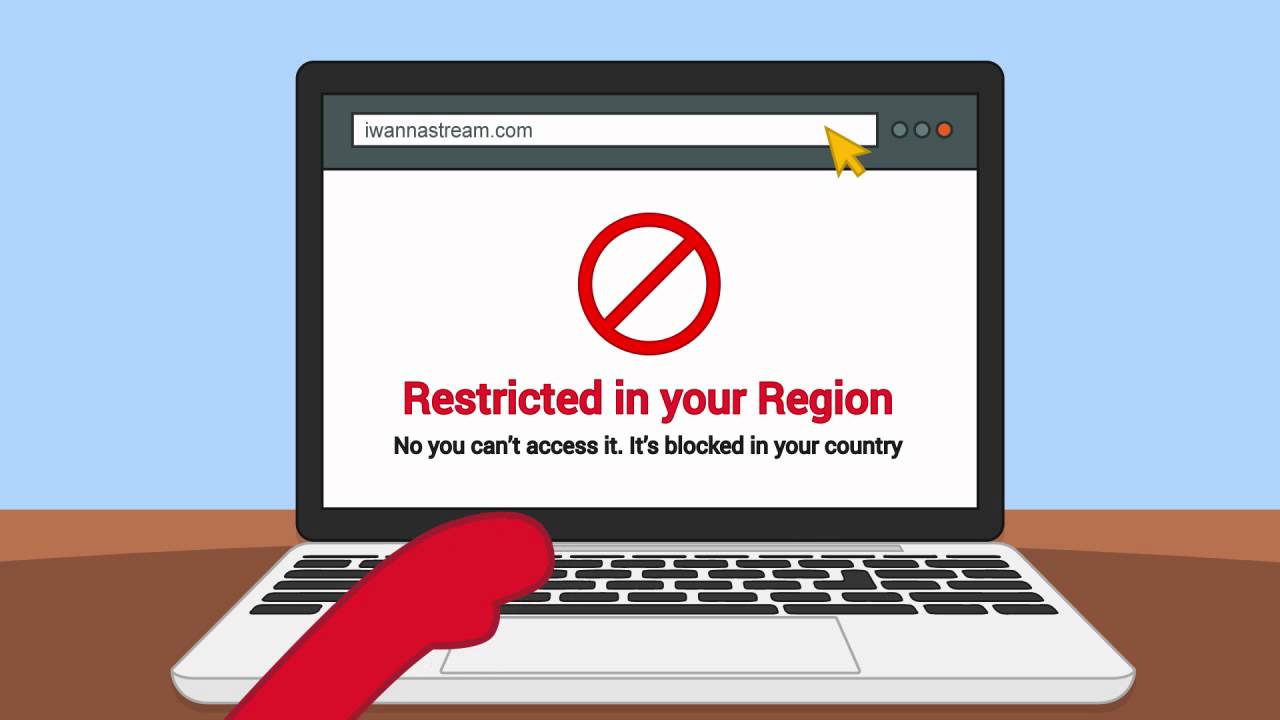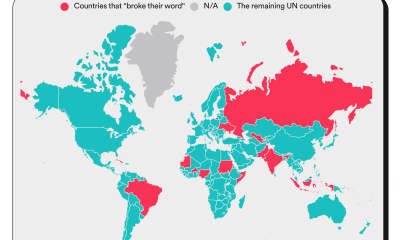Technology
Nigeria’s Digital Quality of Life Index Declines to 100

Surfshark’s Digital Quality of Life Index (DQL) 2024 ranks Nigeria 100th in the world. The study indicates how well the country is performing in terms of overall digital well-being compared to other nations. Nigeria drops by twelve places from last year, which reflects a lack of commitment to developing the digital landscape and positioning the country as a leader in leveraging technological advancements to improve citizens’ quality of life.
“In an election year like 2024, where the digital realm shaped political discourse and societal values, prioritizing digital quality of life proved to be more important than ever. It helps to ensure informed citizens, protects democratic processes, and fosters innovation. Our annual project helps to better understand where each county stands in terms of digital divide, highlighting where a nation’s digital quality of life excels and where further focus is required,” says Tomas Stamulis, Chief Security Officer at Surfshark.
Out of the Index’s five pillars, Nigeria performed best in e-security, claiming 76th place, but faced challenges in e-infrastructure, ranking 108th. The nation ranks 94th in e-government, 103rd in internet quality, and 106th in internet affordability. In the overall Index, Nigeria lags behind South Africa (66th) and Kenya (89th). Collectively, African countries lag behind in their digital quality of life, Nigeria taking 14th place in the region.
Nigeria ranks lower in e-government than 77% of the countries analyzed, with 93 countries above.
E-government determines how advanced and digitized a country’s government services are. A well-developed e-government helps minimize bureaucracy, reduce corruption, and increase transparency within the public sector. This pillar also shows the level of Artificial Intelligence (AI) readiness a country demonstrates. Countries with the highest readiness to adopt AI technology are also ready to counter national cyberthreats. Nigeria ranks 94th in the world in e-government — six places lower than last year.
Nigeria is 76th in the world in e-security — three places lower than last year.
The e-security pillar measures how well a country is prepared to counter cybercrime and how advanced a country’s data protection laws are. In this pillar, Nigeria lags behind South Africa (75th) and Kenya (69th). Nigeria is unprepared to fight against cybercrime, the country has some data protection laws.
Nigeria’s internet quality is 25% lower than the global average.
- Nigeria’s fixed internet averages 39Mbps. To put that into perspective, the world’s fastest fixed internet — Singapore’s — is 347Mbps. Meanwhile, the slowest fixed internet in the world — Tunisia’s — is 14Mbps.
- Nigeria’s mobile internet averages 78Mbps. The fastest mobile internet — the UAE’s — is 430Mbps, while the world’s slowest mobile internet — Yemen’s — is 12Mbps.
Compared to South Africa, Nigeria’s mobile internet is 15% slower, while fixed broadband is 51% slower. Since last year, mobile internet speed in Nigeria has improved by 65%, while fixed broadband speed has grown by 55%.
The internet is unaffordable in Nigeria compared to other countries.
- Nigerians have to work 10 hours 43 minutes a month to afford fixed broadband internet. It is 46 times more than in Bulgaria, which has the world’s most affordable fixed internet (Bulgarians have to work 14 minutes a month to afford it).
- Nigerians have to work 2 hours 44 minutes 14 seconds a month to afford mobile internet. This is 18 times more than in Angola, which has the world’s most affordable mobile internet (Angolans have to work 9 minutes a month to afford it).
Nigeria is 108th in e-infrastructure.
Advanced e-infrastructure makes it easy for people to use the Internet for various daily activities, such as working, studying, shopping, etc. This pillar evaluates how high internet penetration is in a given country and its network readiness (readiness to take advantage of Information and Communication Technologies). Nigeria’s internet penetration is low (35% — 109th in the world), and the country ranks 102nd in network readiness.
On a global scale, investing in e-government and e-infrastructure improves digital well-being the most
Among the five pillars, e-government has the strongest correlation with the DQL index (0.92), followed by e-infrastructure (0.91).
Internet affordability shows the weakest correlation at 0.65.
METHODOLOGY
The DQL Index 2024 examines 121 nations based on five core pillars that consist of 14 indicators. The study is based on the United Nations’ open-source information, the World Bank, and other sources. Nigeria’s full profile in the 2024 Digital Quality of Life report and an interactive country comparison tool can be found here: https://surfshark.com/research/dql/country/NG.
Technology
Telecom Operators to Issue 14-Day Notice Before SIM Disconnection

By Adedapo Adesanya
Telecommunications operators in Nigeria will now be required to give subscribers a minimum of 14 days’ notice before deactivating their SIM cards over inactivity or post-paid churn, following a fresh proposal by the Nigerian Communications Commission (NCC).
The proposal is contained in a consultation paper, signed by the Executive Vice Chairman and Chief Executive Officer of the NCC, Mr Aminu Maida, and titled Stakeholders Consultation Process for the Telecoms Identity Risks Management Platform, dated February 26, 2026, and published on the Commission’s website.
Under the proposed amendments to the Quality-of-Service (QoS) Business Rules, the Commission said operators must notify affected subscribers ahead of any planned churn.
“Prior to churning of a post-paid line, the Operator shall send a notification to the affected subscriber through an alternative line or an email on the pending churning of his line,” the document stated.
It added that “this notification shall be sent at least 14 days before the final date for the churn of the number.”
A similar provision was proposed for prepaid subscribers. According to the Commission, operators must equally notify prepaid customers via an alternative line or email at least 14 days before the final churn date.
Currently, under Section 2.3.1 of the QoS Business Rules, a subscriber’s line may be deactivated if it has not been used for six months for a revenue-generating event. If the inactivity persists for another six months, the subscriber risks losing the number entirely, except in cases of proven network-related faults.
The new proposal is part of a broader regulatory review tied to the rollout of the Telecoms Identity Risk Management System (TIRMS), a cross-sector platform designed to curb fraud linked to recycled, swapped and barred mobile numbers.
The NCC explained in the background section of the paper that TIRMS is a secure, regulatory-backed platform that helps prevent fraud stemming from churned, swapped, barred Mobile Station International Subscriber Directory Numbers in Nigeria.
It said this platform will provide a uniform approach for all sectors in relation to the integrity and utilisation of registered MSISDNs on the Nigerian Communications network.
In addition to the 14-day notice requirement, the Commission also proposed that operators must submit details of all churned numbers to TIRMS within seven days of completing the churn process, strengthening oversight and accountability in the system.
The consultation process, which the Commission said is in line with Section 58 of the Nigerian Communications Act 2003, will remain open for 21 days from the date of publication. Stakeholders are expected to submit their comments on or before March 20, 2026.
Technology
Silverbird Honours Interswitch’s Elegbe for Nigeria’s Digital Payments Revolution

By Modupe Gbadeyanka
The founder of Interswitch, Mr Mitchell Elegbe, has been honoured for pioneering Nigeria’s digital payments revolution.
At a ceremony in Lagos on Sunday, March 1, 2026, he was bestowed with the 2025 Silverbird Special Achievement Award for shaping Africa’s financial ecosystem.
The Silverbird Special Achievement Award recognises individuals whose innovation, vision, and sustained impact have left an indelible mark on society.
Mr Elegbe described the award as both humbling and symbolic of a broader journey, saying, “This honour represents far more than a personal milestone. It reflects the courage of a team that believed, long before it was fashionable, that Nigeria and Africa could build world-class financial infrastructure.”
“When we started Interswitch, we were driven by a simple but powerful idea that technology could democratise access, unlock opportunity, and enable commerce at scale.
“This recognition by Silverbird strengthens our resolve to continue building systems that empower businesses, support governments, and expand inclusion across the continent,” he said when he received the accolade at the Silverbird Man of the Year Awards ceremony attended by several other dignitaries, whose leadership and contributions continue to shape national development and industry transformation.
In 2002, Mr Elegbe established Interswitch after he was inspired by a bold conviction that technology could fundamentally redefine how value moves within and across economies.
Under his leadership, the company has evolved into one of Africa’s foremost integrated payments and digital commerce companies, powering financial transactions for governments, banks, businesses, and millions of consumers.
Today, much of Nigeria’s electronic payments ecosystem traces its foundational architecture to the systems and rails established under his leadership.
“Mitchell’s journey is inseparable from Nigeria’s digital payments evolution. His foresight and resilience helped establish foundational infrastructure at a time when the ecosystem was still nascent.
“This recognition affirms not only his personal legacy, but the broader impact of Interswitch in enabling commerce and strengthening financial systems across Africa,” the Executive Vice President and Group Marketing and Communications for Interswitch, Ms Cherry Eromosele, commented.
Technology
SERAP Seeks FCCPC Probe into Big Tech’s Impact on Nigeria’s Digital Economy

By Adedapo Adesanya
The Socio-Economic Rights and Accountability Project (SERAP) has called on the Federal Competition and Consumer Protection Commission (FCCPC) to urgently investigate major global technology companies over alleged abuses affecting Nigeria’s digital economy, media freedom, privacy rights and democratic integrity.
In a complaint addressed to the chief executive of FCCPC, Mr Tunji Bello, the group accused Google, Meta (Facebook), Apple, Microsoft (Bing), X, TikTok, Amazon and YouTube of deploying opaque algorithms and leveraging market dominance in ways that allegedly undermine Nigerian media organisations, businesses, and citizens’ rights.
The complaint, signed by SERAP Deputy Director, Mr Kolawole Oluwadare, urged the commission to take measures necessary to urgently prevent further unfair market practices, algorithmic influence, consumer harm and abuses of media freedom, freedom of expression, privacy, and access to information.”
SERAP also asked the FCCPC to convene a public hearing to investigate allegations of algorithmic discrimination, data exploitation, revenue diversion, and anti-competitive conduct involving the tech giants.
According to the organisation, dominant digital platforms now act as private gatekeepers of Nigeria’s information and business ecosystem, wielding enormous influence over public discourse and market competition without sufficient transparency or regulatory oversight.
“Millions of Nigerians rely on these platforms for news, information and business opportunities,” SERAP stated, warning that opaque algorithms and offshore revenue extraction models pose both economic and human rights concerns.
The group argued that the alleged practices threaten media plurality, consumer protection, privacy rights, and the integrity of Nigeria’s forthcoming elections.
SERAP pointed to actions taken by the South African Competition Commission, which investigated Google over alleged bias against local media content, adding that the South African probe reportedly resulted in measures including algorithmic transparency requirements, compliance monitoring and financial remedies.
SERAP urged the FCCPC to take similar steps to safeguard Nigerian media and businesses.
The organisation maintained that if established, the allegations could amount to violations of Sections 17 and 18 of the Federal Competition and Consumer Protection Act (FCCPA), which prohibit abuse of market dominance and anti-competitive conduct.
SERAP stressed that the FCCPC has statutory authority to investigate and sanction conduct that substantially prevents, restricts or distorts competition in Nigeria.
It also warned that failure by the Commission to act promptly could prompt the organisation to pursue legal action to compel regulatory intervention.
Citing concerns reportedly raised by the Nigerian Press Organisation (NPO), SERAP said big tech companies have fundamentally altered Nigeria’s information environment, creating what it described as a structural imbalance of power that threatens the sustainability of professional journalism.
Among the allegations listed are: Algorithms controlled outside Nigeria determining content visibility, monetisation of Nigerian news content without proportionate reinvestment, offshore extraction of advertising revenues, limited discoverability of Nigerian websites and platforms, and lack of transparency in ranking and recommendation systems.
SERAP argued that declining revenues in the Nigerian media industry have led to shrinking newsrooms, closure of bureaus, and the emergence of news deserts, weakening journalism’s constitutional role in democratic accountability.
The organisation further warned that algorithmic opacity and data-driven micro-targeting could influence voter exposure to information ahead of Nigeria’s forthcoming elections, raising concerns about electoral fairness and transparency.
-

 Feature/OPED6 years ago
Feature/OPED6 years agoDavos was Different this year
-
Travel/Tourism10 years ago
Lagos Seals Western Lodge Hotel In Ikorodu
-

 Showbiz3 years ago
Showbiz3 years agoEstranged Lover Releases Videos of Empress Njamah Bathing
-

 Banking8 years ago
Banking8 years agoSort Codes of GTBank Branches in Nigeria
-

 Economy3 years ago
Economy3 years agoSubsidy Removal: CNG at N130 Per Litre Cheaper Than Petrol—IPMAN
-

 Banking3 years ago
Banking3 years agoSort Codes of UBA Branches in Nigeria
-

 Banking3 years ago
Banking3 years agoFirst Bank Announces Planned Downtime
-

 Sports3 years ago
Sports3 years agoHighest Paid Nigerian Footballer – How Much Do Nigerian Footballers Earn

















